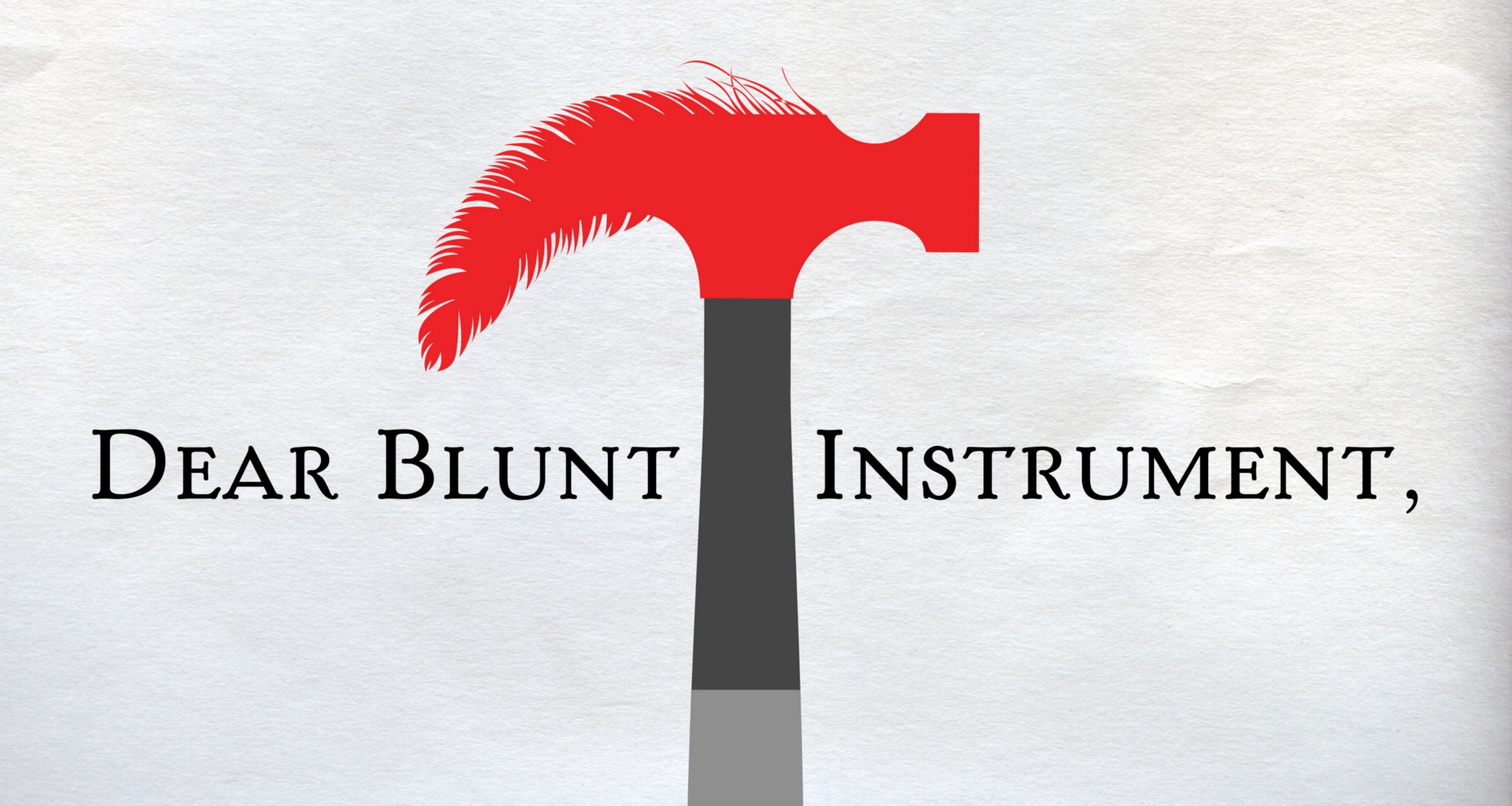Advice
Am I Allowed to Break Up with My Book Agent?
The Blunt Instrument takes on a question about how to handle a professional relationship that feels very personal

The Blunt Instrument is an advice column for writers, written by Elisa Gabbert (specializing in nonfiction), John Cotter (specializing in fiction), and Ruoxi Chen (specializing in publishing). If you need tough advice for a writing problem, send your question to blunt@electricliterature.com.
Dear Blunt Instrument,
I struggled to find an agent for my memoir and I was thrilled when one finally reached out based on an essay I wrote. But now that the book is sold (for a tiny advance, after many rejections, but to a publisher I feel good about), I’m realizing that I could have used… a lot more hand-holding and information throughout the process. It felt like everything happened offscreen for me, and I don’t even fully understand the details of the deal. I also find my agent brusque in a way that’s embarrassing by proxy—he has always been nice to me on the phone and in person, but when he emails editors I have to fight the desire to apologize for him. I haven’t signed anything saying I would work with him exclusively, but I’m not sure how to break up, or even whether to. What are my responsibilities here? Or should I stick with this guy because beggars can’t be choosers?
If everyone in the publishing industry had a true bird’s eye view on things, we’d make capitalism work a lot better for us. So we guess. Your agent, your editor, and your publishing team are guessing right alongside you, with more information and more context, yes, but we’re guessing all the same. That feeling of “we’re all in this together” can be one of the great pleasures of writing and publishing, an industry that can feel stitched together out of targeted naïveté, low margins, long hours, and the hope that you’re creating more than just widgets. But it can also make you forget that you’re in a business—that, if you’re a writer, you are a business. You shouldn’t. You’ve set out to make a career out of something that may feel emotional and intangible and impossible to quantify. You’ve hired someone you trust to help navigate. The fact that we’re all bumbling along together doesn’t change the fact that you get to decide how to guess—and decide whether you guessed wrong.
In your letter, you sound like a thoughtful person who doesn’t want to hurt any feelings unnecessarily, but this is not about feelings. It’s OK—and important—to prioritize yourself. We are trained to romanticize the work in a way that often blurs the lines between the personal and professional, and even if we weren’t, the job of an agent doesn’t slot easily into most professional metaphors. An agent is not your employee, or your coworker; you’re not exactly his product, but your role as his client is also atypical (you’re not paying him for a service; he’s taking a cut of what he gets for you). The “finding an agent is like dating” metaphor gets tossed around a lot—I notice you also talk about parting ways with your agent as “breaking up.” Sometimes it’s an imperfect lens (no one should imagine themselves trapped in a loveless agent marriage) and sometimes it’s right on the nose (this is a business relationship but it’s also absolutely about chemistry). Here’s what there’s no question about: it is a professional relationship, and it’s one where you get the final say.
Part of your agent’s job is to be your proxy, your voice to your publisher.
It’s also one in which you should have the final say, because your agent is representing you. Part of your agent’s job is to be your proxy, your voice to your publisher. If that voice is embarrassing you, he’s not doing that job. This doesn’t mean he’s a bad agent; he may be the perfect champion for a different author. Some authors don’t want to know any of the gory details or have a contract broken down into every little sub-clause. Others might want to know what toothpaste their sales reps are using. Most are somewhere in between.
When you write a book, especially a memoir, you are taking something vulnerable and visceral and introducing it to a world of strangers. When you sell that book, you are putting this fragile piece of yourself into the hands of a huge team of people, many of whom you will never meet. Your agent’s job is to make this process feel manageable and safe. It sounds like that hasn’t happened in this case, and it’s perfectly fine for you step away. It’s not uncommon for authors to leave agents (and vice versa), and for it to take a few tries before you find the right agent for you. There are also so many factors—a genre switch, a career shift, a geographic move—that could be involved. If you’ve never had a check-in conversation where you bring up your reservations, I might do that first to gauge his response, but if you know in your gut that you’d be more comfortable working with someone else, don’t be afraid to listen to your gut. There is so much uncertainty and cause for anxiety baked into the process—your agent shouldn’t be part of that.
As for how to break up, as long as you’re doing it definitively and clearly (and before you start querying other agents), the medium will depend on your communication style and his. Keep in mind that he’ll still be the agent of record on your first book and that one of you will need to coordinate with the publisher on how to distribute royalties if you don’t want to keep getting payments through your old agency. Same goes for any unsold rights on the project. If you have your next project ready to go, you might want to start the process right away. If you’re still working on it and need the time to strategize, you might want to wait.
I know authors who are still personal friends with their former agents even though the business part of their relationship stopped making sense. Editors will find themselves having friendly heart-to-hearts (as friends) with the same agent they might have to send an awkward email to the next week (as colleagues). It’s a small, close-knit industry and social intimacy happens. Everyone understands that sometimes you have to make hard decisions because sooner or later, they’ll be in the same shoes. If you make them thoughtfully and kindly and remember to be human about it, that’s all anyone expects. Publishing is wonderful because you get to work with friends on something you love. Publishing is terrible because you have to work with your friends on something that can break your heart.
You sound like you have a clear idea of what didn’t work for you with your agent. If you’re just asking for permission to pull the trigger, here’s my permission. Congratulations on having this first book out in the world and good luck on finding the right person to champion all the books to come.








